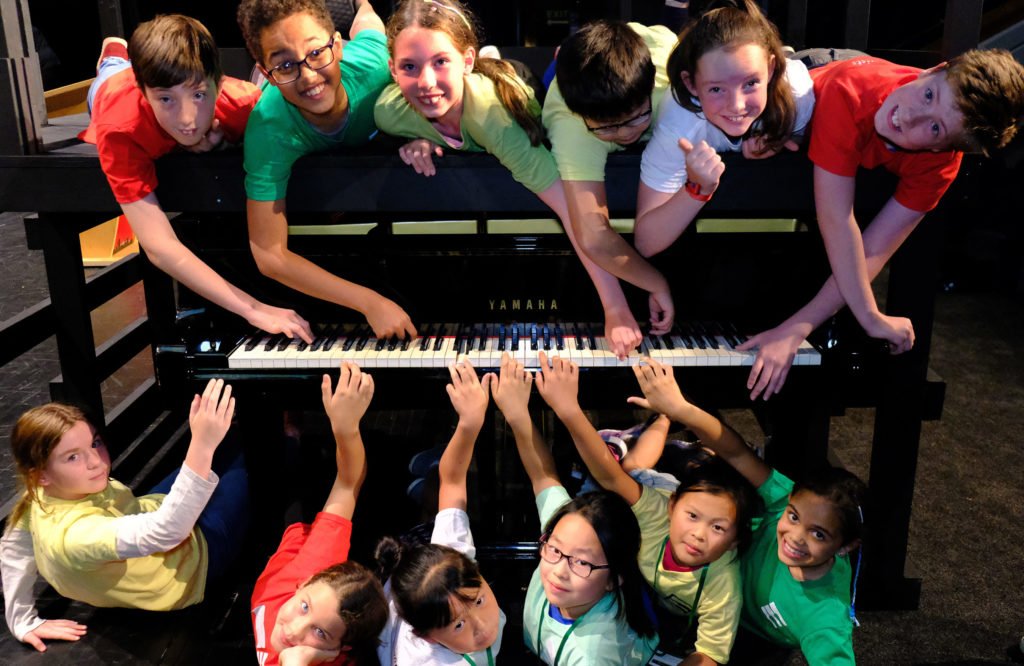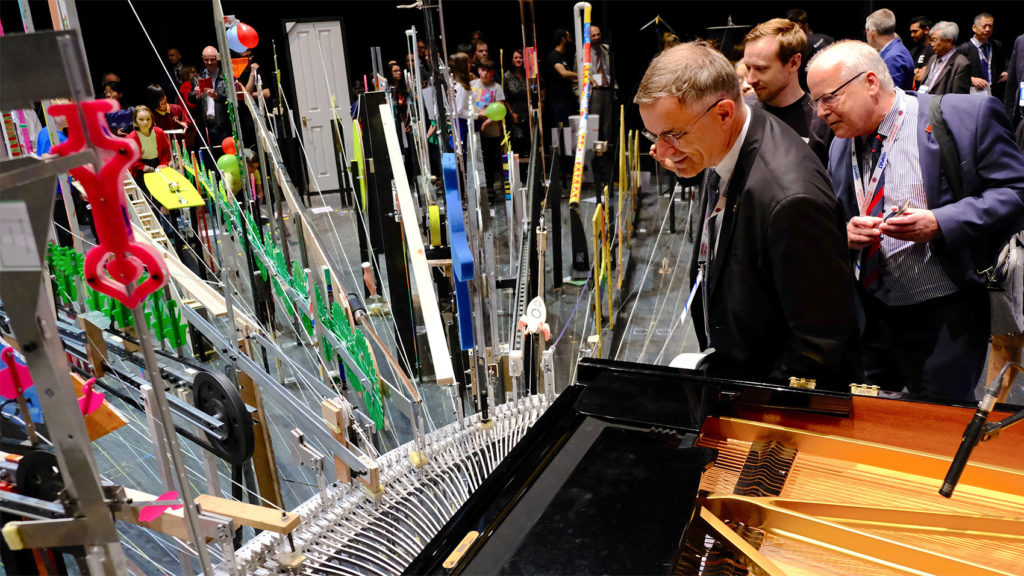Author: Dr Evros Loukaides - Lecturer, Department of Mechanical Engineering
Over the past 18 months, a team of academics, researchers and students from the Department of Mechanical Engineering participated in a unique outreach project that combined STEM and creative musical activities. The “88 pianists” project marked 500 years since Leonardo da Vinci’s death with an attempt to set an unbreakable world record: enabling the greatest possible number of musicians to play one piano at the same time. The world record previously stood at 19. Bringing this figure to match the number of keys on a piano would make the record unbreakable.
The overall project was a collaboration between academics at ten institutions and involved engineers, musicians, teachers and 35 primary schools. The Royal Conservatoire in Birmingham recruited young pianists for the performance and composer Martin Riley was commissioned to create a piece of music for the occasion. The endeavour presented various engineering hurdles, not least giving 88 musicians access to one piano. We therefore challenged Key Stage 2 children from across the UK to design mechanical fingers to enable this record-breaking performance.

In our school visits, we introduced the challenges that such a task might entail to the children and discussed how the engineering profession often deals with such problems. We described to them the internal workings of a piano and the difficulty of placing so many people around one instrument. In each visit, we were joined by musicians who described the complexities of performing with others and introduced concepts such as tempo with entertaining games.
The highlight of our visits was when we invited our classes to construct mechanical fingers with a custom kit developed by the project team. It was refreshing to see the unique solutions of our young engineers in response to this unusual task. Our innovative young designers then signed their names on their suggested designs. Those designs acted as our starting point for the development of devices that were used in the final performance in August following a thorough selection process. Although we had to debate the optimum number of unicorns and dragons for the stage, the evaluation process was pleasant.
During the development of the physical manifestations of these designs, we made a second visit to the six schools the Bath team has worked with. The additional interaction was designed to give the children insights on the practical aspects of realising a design and by no means were we to allow another giraffe to be added to our collection.

The successful attempt to break the record took place in Birmingham on 19 August with an audience of academics from around the world and proud parents. Pictures and videos from the performance were widely distributed by national and international news outlets, and helped us reach a larger global audience with this inspiring story about creativity and science.
You can find relevant videos and further information at www.88pianists.com and on twitter @88Pianists.
